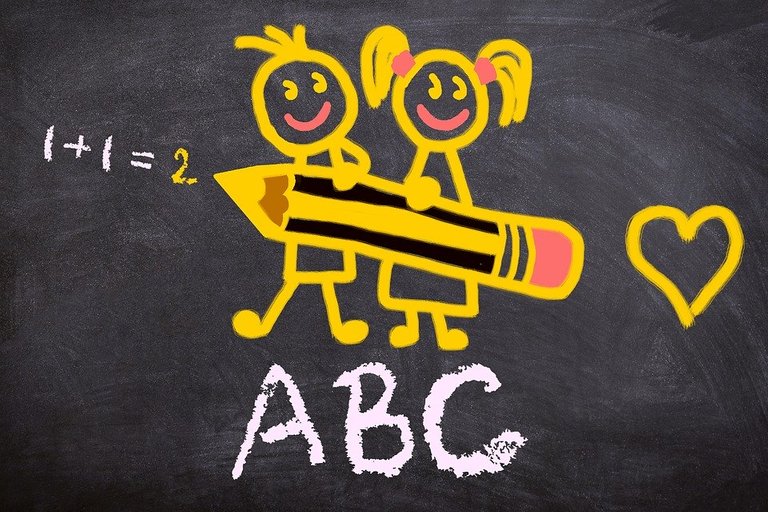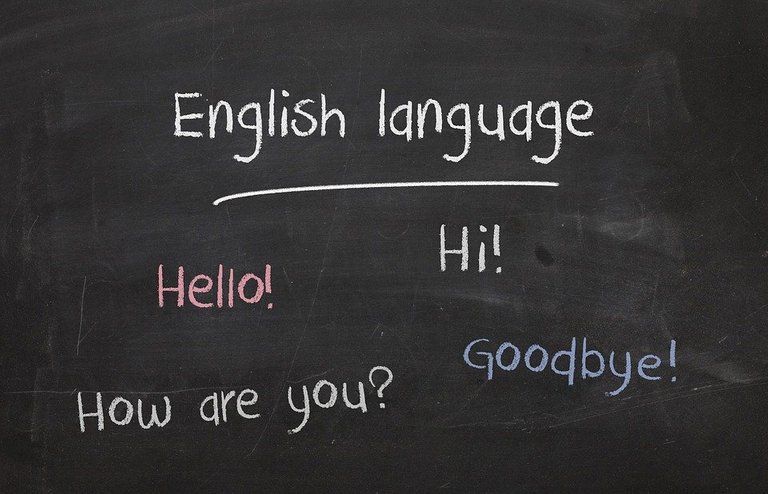Without further ado, let's let's get down to brass tacks
First, there is this tricky thing in English language . If you don't Understand English phonology, it will affect your grammar in spoken and written English.
Yes, I say so . There is a connection between the orthographic alphabet and the phonetic alphabet.
Oh, by the way. Alphabet is a set of letters used in writing for a particular language.
The word 'love' has four alphabets ❌
The word love has four letters ✔
We have 26 alphabets in English .❌
We have 26 letters in the English alphabet ✔

image credit: Pixabay
When you don't have the basic understanding of English phonology and how they can interfere with your writing, you will make silly mistakes as you speak and as you write.
Here are a list of mistakes you will make confidently as you write and speak without even knowing you made mistakes.
I need to get an ewe for my ram❌
I need to get a ewe for my ram ✔
Note: the phonetic transcription of the word 'ewe' starts with a CONSONANT /j/ sound.
Anyway , let's continue
Same thing applies to words like , European, eulogy , euphemism etc.
He is an European❌
He is a European ✔
Here is an eulogy for the departed ❌
Here is a eulogy for the departed✔
'Pushing up the daisies' is an euphemism used to say that someone is dead.❌
'Pushing up the daisies' is a euphemism used to say that someone is dead.✔
'Pushing up the daisies' is used to create humorous effect in conversation.
E.g.
Mum: Nneka when will you get married
Nneka: I am waiting for God's time mum.
Mum: really? So you are waiting for the time that I will be pushing up the daisies for you to get a man and bear grand children for me?
......

image credit: Pixabay
I guess you have learnt one idiom from me today.
The truth of the matter is, those of us who strive hard to learn oral English are not stupid.
If you learn the English phonology , you will become a better writer.
You will understand that some words that begin with a consonant in their orthographic representations, might begin with a vowel in their phonetic representations. You would Be doing yourself a huge disservice if you really don't know all these.
Well, let me make it crystal clear using some examples.
Orthography : heir
Phonetic : / eə/
He is a heir to the throne❌
He is an heir to the throne ✔
Orthography: honour
Phonetic :/ɒnə/
It's a honour to be here ❌❌
It's an honour to be here ✔
Orthography: honourable
Phonetic: /ˈɒnərəbl/
That is a honourable thing to do ❌
That is an honourable thing to do✔
Orthography: honest
Phonetic:/ɒnɪst/
She is such a honest lady❌
She is such an honest lady ✔

image credit: Pixabay
Usually, the phonetic transcription of a word determines what article should come before it . Don't be deceived by the outer orthographic representation.
I am in bed' or 'I am on bed'
When you have retired for the day and the next thing is for you to 'hit the sack' (This means 'sleep'), then you are in bed.
When someone is in bed, the person is relaxing while lying on the bed or sleeping on it.
Remember 'in bed' is an appropriate English expression.
I was on bed when you came ❌❌
I was in the bed when you came ❌
I was in bed when you came ✔.
Don't use 'the' in that expression. It mars the expression.
I know this is tricky for you but that's how native speakers say it.
Finally, when a word is specified as old English, it means it is archaic and not in use at all. These archaic words are there in the dictionary to help you understand books written during the medieval times.
She has put to bed❌
She was brought to bed.✔(archaic)
She has given birth (current)
Isn't learning the intricacies of languages amazing?
Another word like this is "Harlot".
It is an old-fashioned word. It is something commonly spoken these days. Many native speakers would find it weird that you use such a biblical term in your everyday spoken English ..
It's better you use prostitute.
Whore is an offensive word for a prostitute.
'COMFORT WOMAN' is a euphemistic word for a prostitute too.
Finally,
Electric poles❌❌
Utility poles ✔
Check the meaning of utility poles in your dictionaries.
Those tall metal structures that support wires carrying electricity across the country that we get to see on the express are called PYLONS. They are not electric poles too.
You will have a better understanding of the English language.
Aren't you glad you have read this long article?
I love to see you prosper.
I know about English phonology but I have never used it to write in a proper way. I only have used to improve my pronunciation, this post help me a lot. It has given to me a new way to see phonology.
I didn't know about “a European” vs “an European”. I am surprised and glad to learn something new. Thank you!